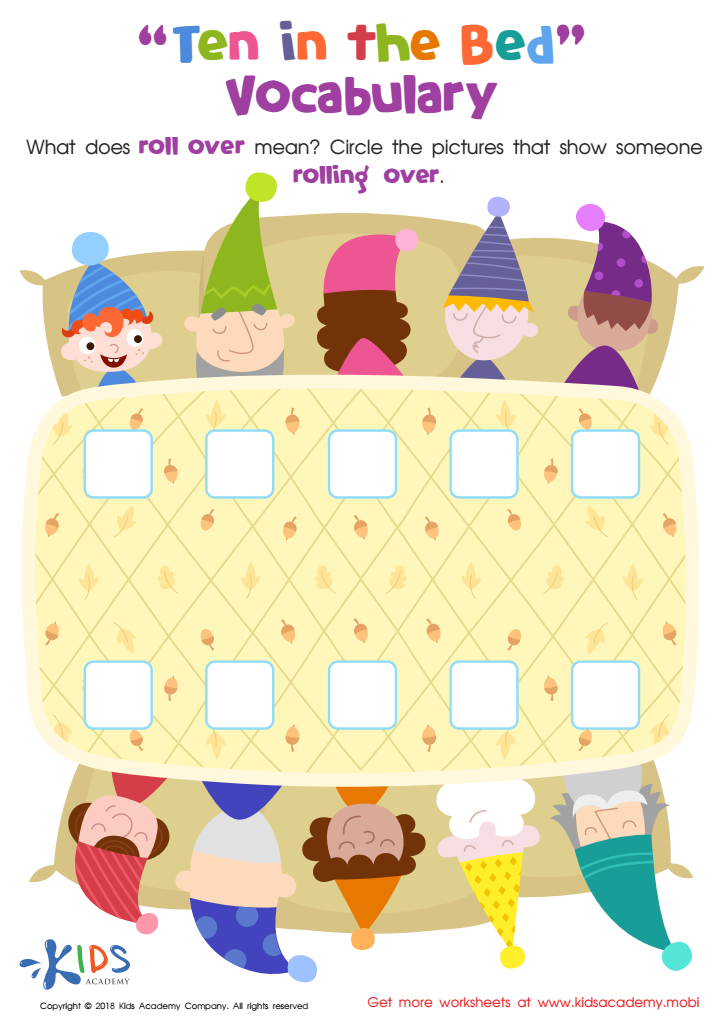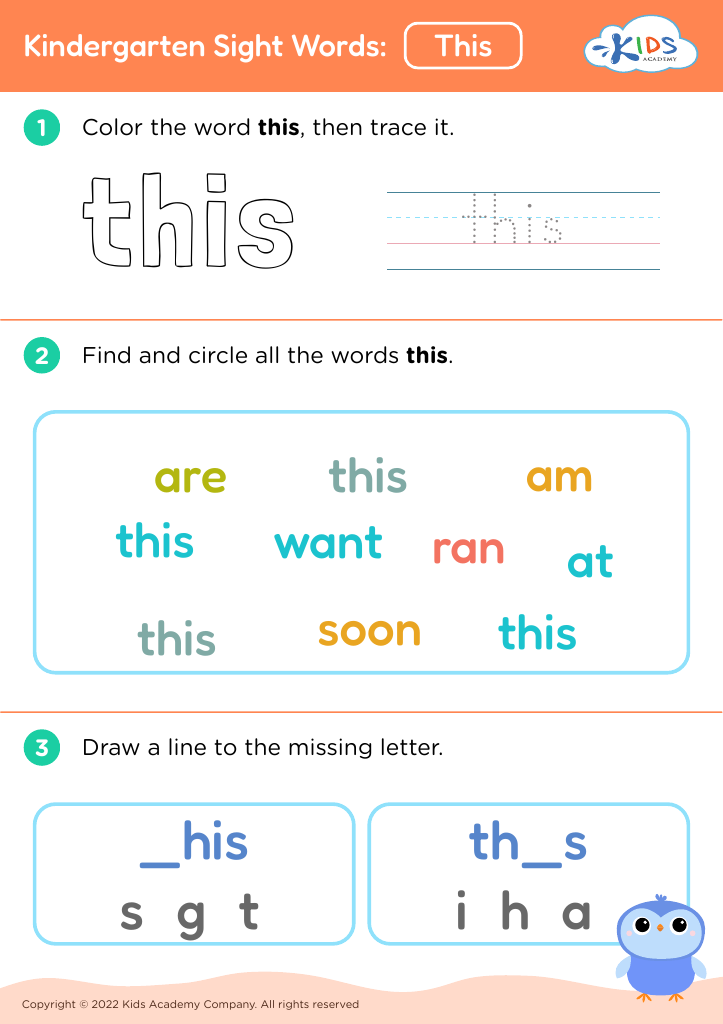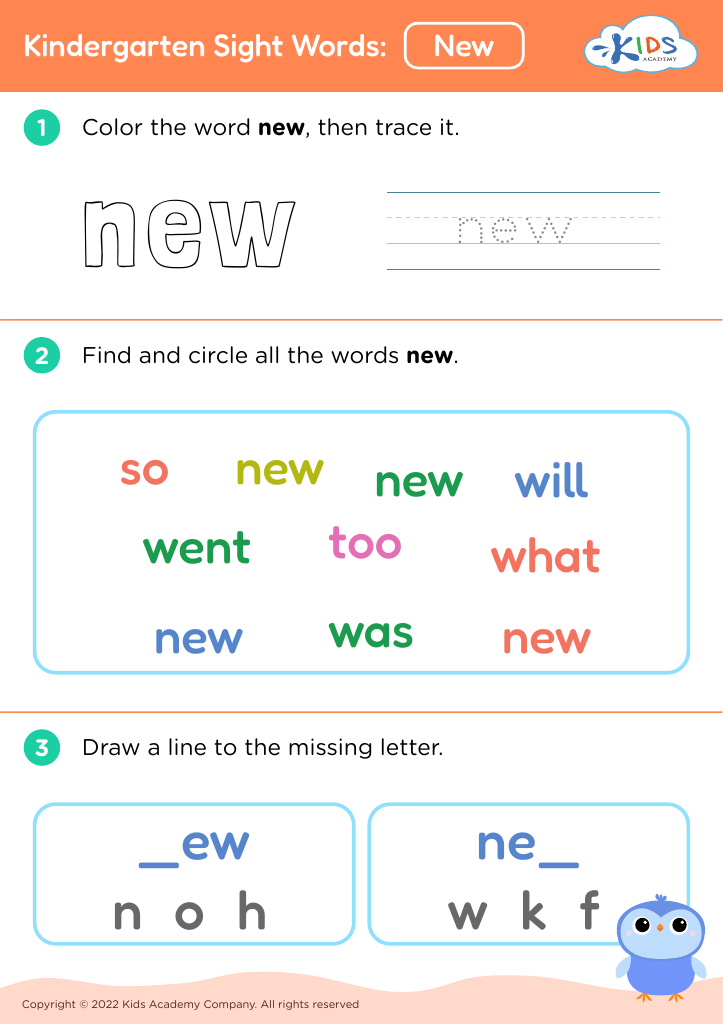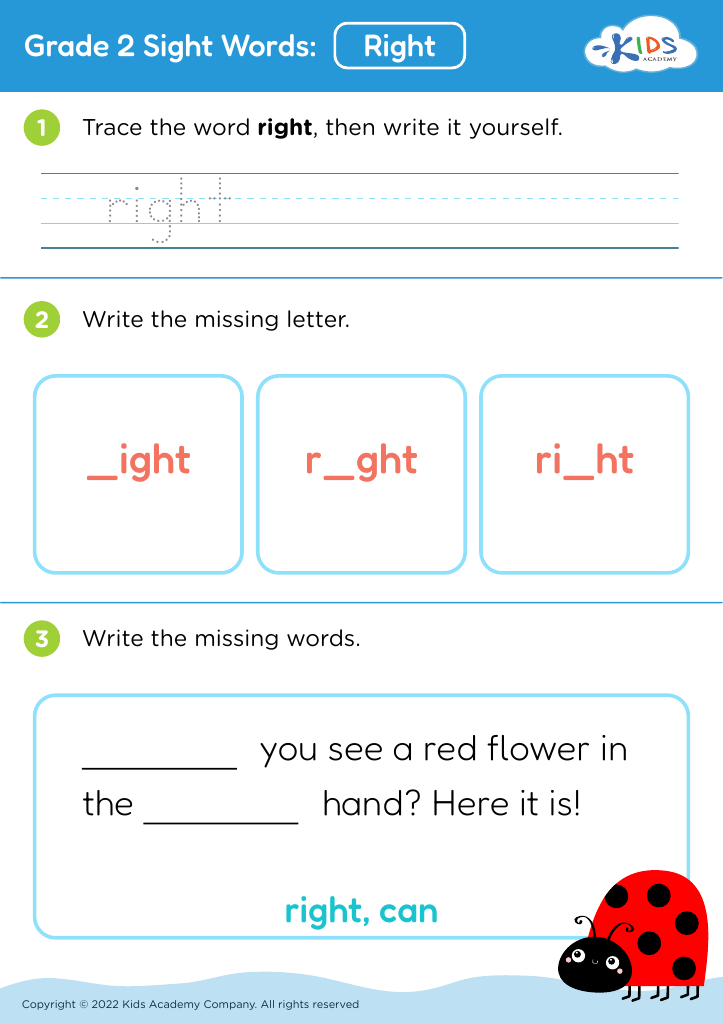Counting practice Building Vocabulary Worksheets for Ages 3-7
8 filtered results
-
From - To
Unlock your child's potential with our Counting Practice Building Vocabulary Worksheets for ages 3-7! Designed to engage young learners, these worksheets combine counting exercises with vocabulary enhancement, making learning both fun and impactful. Children will explore numbers through hands-on activities, helping to reinforce their understanding of quantity while building essential language skills. Our resources are perfect for parents and educators looking to support early childhood development. With vibrant illustrations and interactive tasks, these worksheets foster cognitive growth and promote a love for learning. Start your child's educational journey today and watch them thrive in both math and vocabulary skills!


Ten in the Bed: Vocabulary Worksheet


Fish Worksheet


More Octopus Facts Worksheet
Counting practice and building vocabulary are essential components of early childhood education, particularly for children aged 3-7. During these formative years, children's brains are developing rapidly, making it an ideal time for fostering foundational skills that will serve them throughout their lives.
Counting practice helps children develop mathematical concepts such as number recognition, basic operations, and reasoning skills. Engaging children in counting activities can enhance their ability to solve problems and understand relationships among numbers, which are critical skills for later math success. Moreover, counting promotes cognitive development and encourages logical thinking.
Building vocabulary, on the other hand, lays the groundwork for reading and communication. A rich vocabulary enhances comprehension and the ability to express thoughts clearly. Young children are naturally curious about language, making this an ideal time to introduce new words through playful activities like storytelling, songs, and interactive games.
Together, counting and vocabulary practices enrich children's learning experiences, boosting their confidence and curiosity. For parents and teachers, investing time in these areas not only fosters academic readiness but also nurtures a love for learning, setting the stage for future success in school and beyond. Prioritizing these activities benefits not just individual children, but society as a whole.
 Assign to My Students
Assign to My Students




















.jpg)

.jpg)













